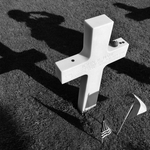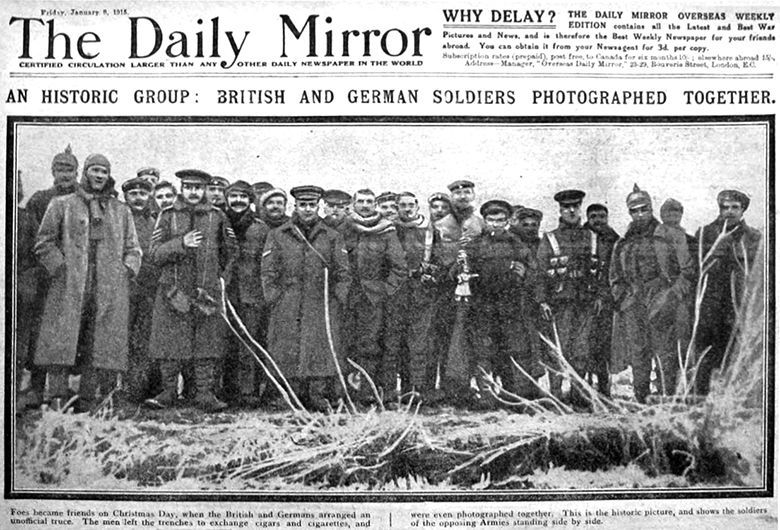
Stille Nacht, heilige Nacht
Stille Nacht, heilige Nacht
Alles schläft; einsam wacht
Nur das traute hochheilige Paar.
Holder Knabe im lockigen Haar,
Schlaf in himmlischer Ruh!
Schlaf in himmlischer Ruh!
Stille Nacht, heilige Nacht,
Hirten erst kundgemacht
Durch der Engel Halleluja,
Tönt es laut von fern und nah:
Christ, der Retter ist da!
Christ, der Retter ist da!
Stille Nacht, heilige Nacht,
Gottes Sohn, o wie lacht
Lieb’ aus deinem göttlichen Mund,
Da uns schlägt die rettende Stund’.
Christ, in deiner Geburt!
Christ, in deiner Geburt!
1818, Franz Xaver Gruber (music), Joseph Mohr (lyrics)
Christmas 1914
During the grueling first months of The Great War, Allied and German forces collided on many different occasions in the Aisne Valley. After having been pushed back into this area, the Germans ceased their retreat, dug in and set up fortified defensive positions. The Allies did the same. By November 1914, the war in that sector reached a stalemate. Trench warfare, the single greatest distinguishing factor of WWI, had begun.
In the days before Christmas 1914, Pope Benedict XV asked "that the guns may fall silent at least upon the night the angels sang."This inquiry for an official truce was quickly denied. But on Christmas Eve of 1914, more than 100,000 soldiers all along the Western Front unofficially laid down their weapons to celebrate a peaceful Christmas together. It is said to have started there, in the Aisne Valley, when German soldiers started placing candles right above the surface of their trenches. Next came small Christmas trees and Christmas carols. Being that most Christmas carols can be translated into a multitude of languages, when the English troops overheard these peaceful and serene tunes being sung in the opposite trenches, they responded in turn. From both sides, some courageous soldiers crept out of their trenches and cautiously made their way into the disputed killing zone called "No Mans Land."Soon, other soldiers followed, leading to what has become one of the most iconic moments of World War I.
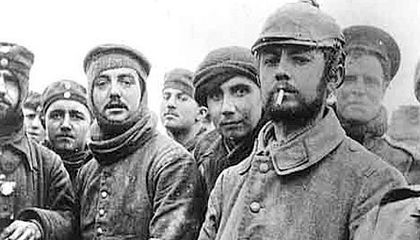
Soldiers exchanged family photos, small gifts such as tobacco, pipes, chocolate, alcohol or even buttons. One account tells the following story:
[...] I wouldn't have missed that unique and weird Christmas Day for anything. I spotted a German officer, some sort of lieutenant I should think, and being a bit of a collector, I intimated to him that I had taken a fancy to some of his buttons. I brought out my wire clippers and, with a few deft snips, removed a couple of his buttons and put them in my pocket. I then gave him two of mine in exchange....
Some men also exchanged intangible things :
The last I saw was one of my machine gunners, who was a bit of an amateur hairdresser in civil life, cutting the unnaturally long hair of a docile Boche, who was patiently kneeling on the ground whilst the automatic clippers crept up the back of his neck...
Though many historians are skeptical, it has been told that a Christmas Day soccer game was played. The mention of The Game has come up in several different accounts, both German and English, though details, such as the final score and amount of players on each team, don't always match.
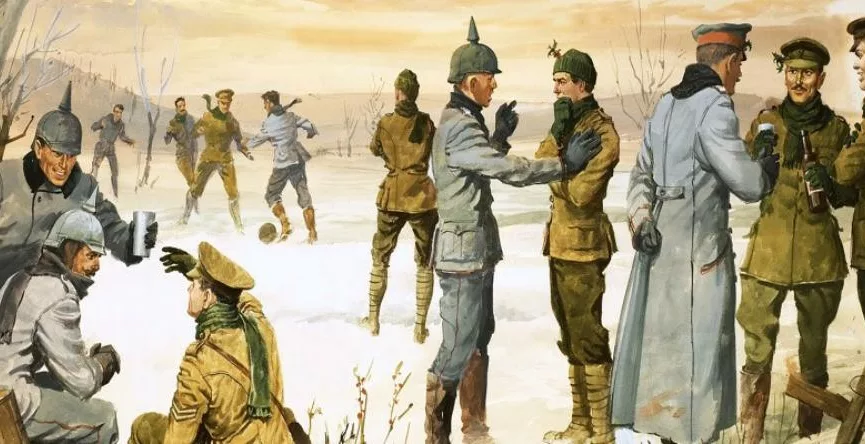
During the peace of December 24th, 1914, many soldiers searched for friends, or even brothers, who had fallen in No Mans Land during combat. It was impossible to access this area during wartime, since any soldiers found between two trenches would have been gunned down by the enemy. This is why, during the improvised truce, hundreds of soldiers from both sides were finally identified and buried, after having laid in the middle of the battlefield for up to four months.
It is important to remember that after this event, none like it ever occurred again. In 1915, the high command ordered that no truces should take place. By 1916, the fighting had become so bitter and gruesome that neither side felt merry enough to be peaceful, even for one evening. It is only due to the early timing in the war that this event was able to take place. Furthermore, for the most part, though some truces lasted all the way until the first day of 1915, fighting resumed on Christmas Day 1914. Death and killing were omnipresent during The Great War, and those who exchanged pictures one day, found themselves firing at each other the next. Nevertheless, though it is undeniable that war is a horrible phenomenon, this story shows that even in the darkest and most terrible circumstances, we can still find compassion, peace and love for one another. The Great War is a story of superfluous misery and death, but in there, it is still possible to find humanity and hope.
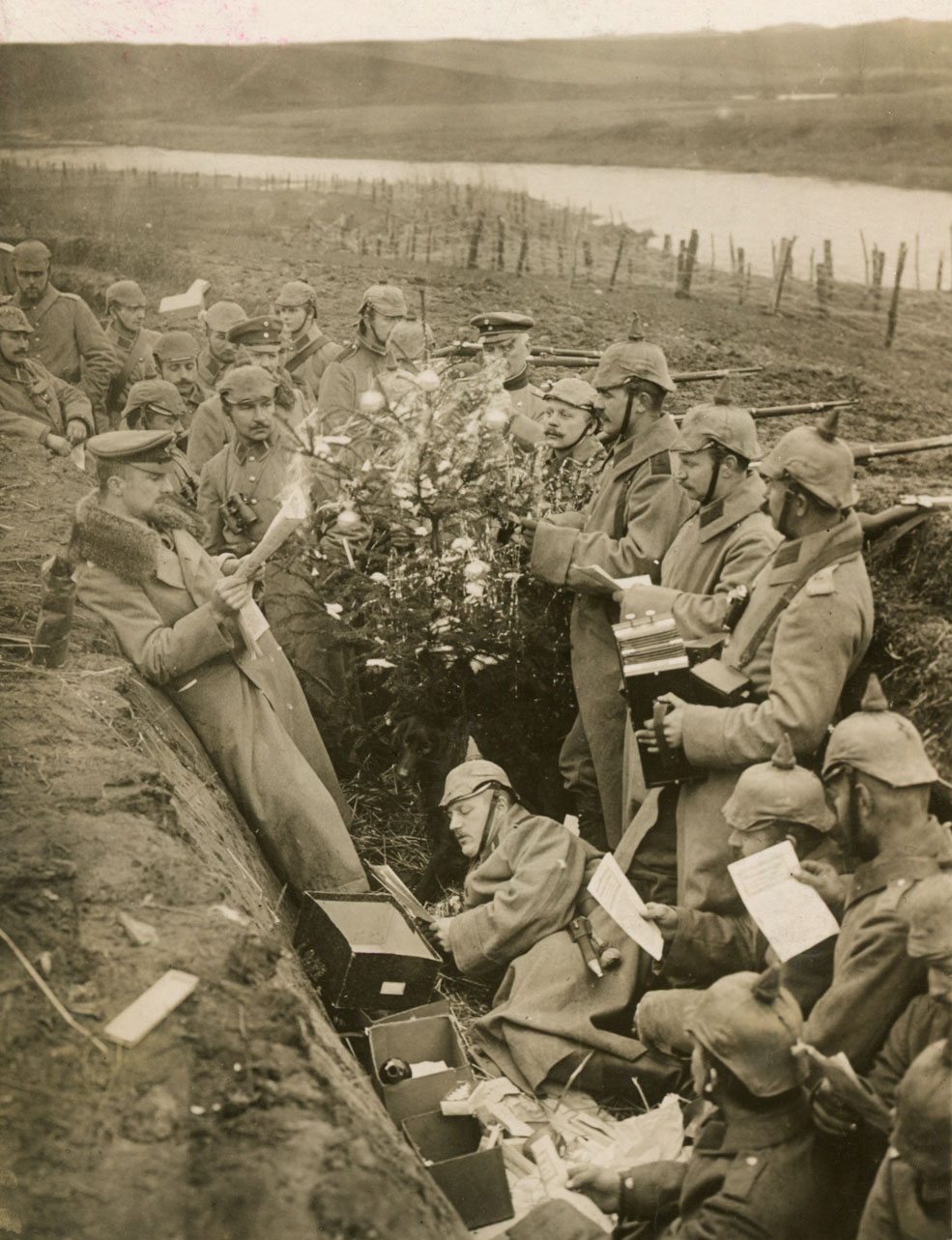
Silent Night
Silent night! Holy night!
All is calm, all is bright
Round yon virgin mother and child!
Holy infant, so tender and mild,
Sleep in heavenly peace!
Sleep in heavenly peace!
Silent night! Holy night!
Shepherds quake at the sight!
Glories stream from heaven afar,
Heavenly hosts sing Alleluia!
Christ the Savior is born!
Christ the Savior is born!
Silent night! holy night!
Son of God, love's pure light
Radiant beams from thy holy face
With the dawn of redeeming grace,
Jesus, Lord, at thy birth!
Jesus, Lord, at thy birth!
1859, John Freeman Young
I promise to remember.

